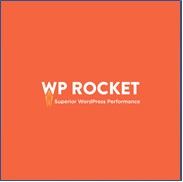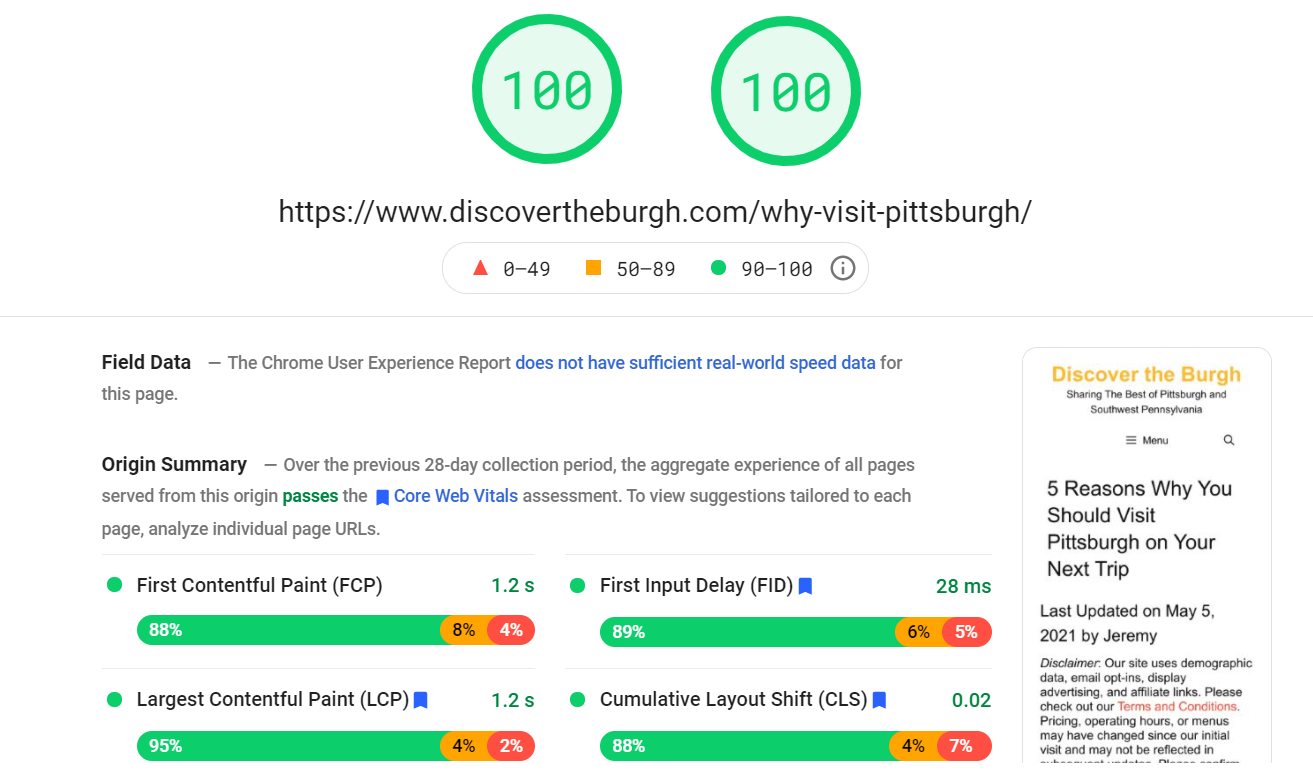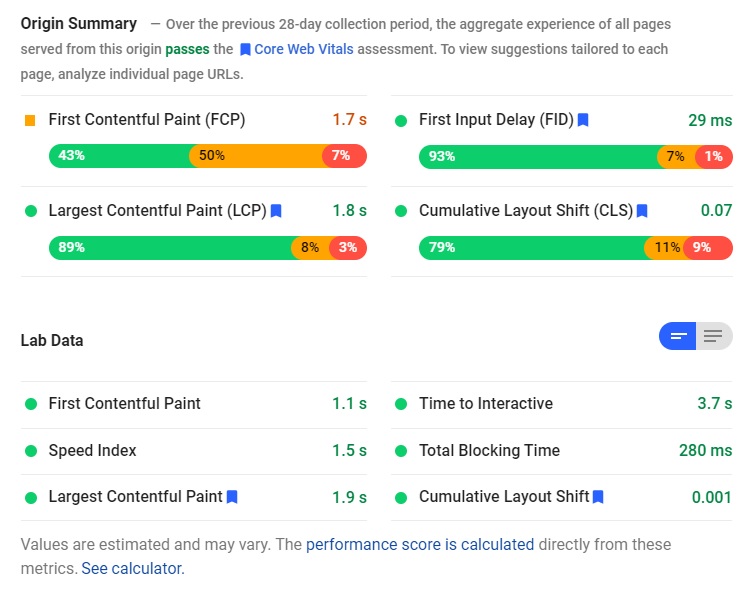Published by Jeremy. Last Updated on January 9, 2023.
Disclaimer: This Week in Blogging uses demographic data, email opt-ins, and affiliate links to operate this site. Please review our Terms and Conditions and Privacy Policy.
For many years, blogging experts have been screaming “niche down, niche down” to encourage those looking to launch a new site to claim ownership of topics where they can shine as experts.
This was done for many reasons, with the biggest simply being that the internet is running out of space. I'm serious. Gone are the days where you can start a general blog, put a little effort in, and succeed. Today blogging is an organized industry, with established best practices, and successful blogs covering nearly every topic there is- often multiple times over.
To translate, this means that competition is fierce. Niching down is a way to stand out amongst the sea of bloggers and allows you to have a clear topical advantage right from the start.
If you're looking to start a niche site in 2023 (or even overhaul your existing site), this guide highlights the important points you must consider.
Niche Blogging in 2023 – Ownership of a Topic
Prior to spending a single penny registering a domain, server, or even locking in social accounts for your new blog, the most important thing you need to do is to research your intended niche to get an understanding of the competition. The internet is filling up fast, and in 2023 blogs exist for many focused topics including eating durian all over the world, vegan dining in Las Vegas, a blog all about educational drawings, and attempting to drink every wine varietal in the world (one of my own niche blogs).
While there is always the potential for the next best thing in even the most established niches, we are the first to admit that starting the 3,735th global travel blog or 8,530th general food blog is an uphill battle. As niche building is all about establishing your authority, voice, and content structure for your topic, there is merit in being unique.
At this point “being unique” is not just an added bonus for your site, it's an absolute necessity- and it is becoming harder and harder to do so as time goes on. We make this point every year, but the simple truth is that 2023 is going to be harder than 2022, which was harder than 2021, and so on.
That is not to say that you have to be the best wine taster in the world to start a wine blog, have to go to more destinations than anyone else to start a travel blog, or have the best chocolate chip cookie recipe to start a cookie blog. Far from it. What we mean here is that the overall topic for your blog should stand out as offering a unique perspective from the pack.
When I started my global travel blog, Living the Dream (in 2008), there were already dozens of people publishing blogs for their gap year. This made growing a challenge, and it has only become harder now that there are literally thousands (if not tens of thousands) out there doing exactly the same thing. While this site gets ok traffic thanks to it being around for years, growth is exceedingly difficult. In 2023, I'm rebranding this one to help it stand out as the generalist angle simply wasn't working (especially during COVID).
When I started my Pittsburgh blog, Discover the Burgh (in 2015), there were only a couple of bloggers focusing on the city in any capacity. How did I stand out? I looked at the topic differently, and my wife and I gave ourselves a quest to do everything in the region. We were the only ones blogging in that context and our blog became unique because of this approach. As most new outlets are focusing on re-writing press releases, we've still managed to keep the “being unique” edge, and growth continues.
When I started our wine blog, The Grape Pursuit (in 2020), I realized there were hundreds of wine bloggers out there doing something similar. But, none of them were going on a quest to try every wine varietal in the world. This was our unique entry into a fairly saturated market, and is an example of how you can cover a relatively common topic (wine) in an uncommon way (trying every varietal).
But coming up with a topic you can own is the first half of the battle, the second half is what you have to do to convey that you're the right person to own it. This is why we generally like to build blogs with quest angles to it because here you don't have to be an expert on day one but grow into being the expert over time. Bake that element into your niche, and you're giving yourself a clear pathway to success with enough time.
Finally, your intended niche should also have traffic potential- too. We found that the niche products sites we started in 2020 and 2021 for coffee and sous vide cooking were too focused to get substantial traffic (and for us to write on regularly), so we broadened out the scope to a home and garden site known as Hipster Homesteaders (2021). As such, we have to highlight that owning a field also comes with the caveat that the topic should have traffic potential to begin with.
Balancing all of that truly is the art to master in 2023!
Blogging With Purpose Matters
Apart from finding your niche, the next thing you need to be cognizant of is the purpose of each and everything you do. Gone are the days where you can start a blog, produce content to your heart's content, and get lucky with growth. In fact, it is far from it now.
Blogging is now a developed industry. As mentioned above, there are major and minor players in every field. Beyond simply figuring out a topic you can own, every action you make should be done with an expressed purpose to either further your expertise in your intended niche, acquire an audience, or produce and promote content for your existing audience (as you build it).
This likely will cost money.
When writing, you need to think of who your target audience is. Are you writing to those you already have acquired on social or in a newsletter, or attempting to reach the latter via SEO? That requires research and a robust understanding of that industry. You'll likely need research tools (Keysearch is great) and a complex understanding of what SEO is (many courses exist).
When you market on social media, how are you acquiring new subscribers? This may require advertising and testing out marketing plans to get the best bang for your buck. Simply publishing content into the ether will not, in most cases at least, trigger growth.
Ask “why am I doing this?” to any act you take in blogging and you better have a good answer for it. Even something as simple as adding a profile photo on your blog unleashes a wealth of questions. “Is this optimized for site speed?” “Do I need alt/title tags?” I could go on.
Every act you make in starting a new blog in 2023 needs to have a purpose behind it to reach your goals. If you cannot answer this, you may be wasting your time on the activity when something more pressing will help get you from A to B. Whatever that is, becoming an expert in your niche, displaying your expertise in content, building your site, or acquiring an audience, the thought process is the same.
Your potential competitors most certainly are thinking of all of these things.
Trends and Changes to Watch Out For in 2023 (and Beyond)
As with every year, the content creation landscape always feels in flux. Ranking in search gets harder and harder, social networks keep restricting reach, new social networks create opportunities, and monetization opportunities may come and go. 2023 will be no different.
Last year, we predicted that video will be the name of the game, and it seems like this is going to hold true more and more in 2023. Social networks, like TikTok, are dominating the short-form video space and opportunities still exist for bloggers to get into the action. Rival networks, like Meta, are doing their best to offer carbon copy video programs with various names, like Reels on Facebook and Instagram, which appear to be getting more organic reach than their historical photo/text/link counterparts.
Some of the biggest issues that bloggers are facing in 2023 are less about the new trends in the industry, and more about the global recession and changing privacy policy landscape at large.
Ad rates are down across the board, which makes relying on things like display ads less lucrative than they have been in previous years. While we expect these to rebound at some point, the looming shift to first-party data in 2024 could cause ad rates to take yet another hit, and bloggers should be preparing for these revenue changes now as the impact could be on a much longer-term than the current recession. (Read more about how to prepare for first party cookies here.)
Some social networks seem to be on their way out as well, with Elon Musk almost singlehandedly destroying Twitter, Pinterest significantly reducing its effectivity for most, and overall reach dropping as well.
While bloggers can and should still operate in these spaces for their valuable sources of traffic now, we should all be prepared for the fact that they may not be offering these in the future, perhaps even the very near future. As such, those who want to be in the best share for long-term success need to diversify traffic sources, build a powerful email list, curate communities in other forms (e.g. Facebook groups), create products for revenue sales, and make a stronger push into affiliate marketing and sponsored content to name a few.
Those who diversify income streams and traffic sources will come out on top once the dust settles. Where you go from there, well, that is the mystery to be solved this year!
Questions to Consider Before Starting a Niche Blog
If you are looking to research a new blog, there are a number of things you should consider. The following is a selection that we look for:
- Is my intended topic being covered already? How close are existing sites to what I want to do? Being the first to look at a topic from a specific angle is great. Being 10th… not so much. Do as many searches as you can on Google and across several social networks to see what competition is out there.
- Is my ideal blog name being used by anyone else in the same industry? This could become a copyright issue.
- Are all the social handles available? Aside from owning your exact name, this could also become a copyright issue and also be a way to see if anyone else is pursuing your intended topic.
- How many articles can I foreseeably write on this topic? If it is 50, it is probably too narrow. If it is 10,000, it is probably too broad. Ask yourself this question again under the lens of how many articles you could write per month. Publication frequency also matters, and generally speaking, topics where you can write weekly do better than monthly or even less frequently.
- Will I still be happy writing about this topic in one year? Five? Ten? Ask yourself this question again under the lens of “what if I also don't get traffic to my site over that period of time?” Most blogs fail because the author simply gets bored and/or frustrated and gives up.
- What is the search traffic potential and difficulty? We use keyword research tools like Keysearch to check this. You could also check out free tools like Google Adwords (volume only) or Ubersuggest, although we don't particularly feel that the latter is all too accurate. You can also look at other websites' keywords via Keysearch to get an idea of traffic potential that way.
- How many people are interested in this topic? If you have existing advertising accounts on social networks, you could set up a mock ad to see what they estimate a target audience could be. Niche blogs tend to do better when targeted to 500,000-2,000,000 people as opposed to 20,000,000+. Define them as best as you can including age, where they live, tangential interests, and more.
- How much traffic do other sites in the niche get? Many websites, online magazines, and blogs publish their traffic in media kits on advertising pages. You can get an idea of high-end traffic potential by researching other players in the space.
- What is your income potential? Beyond advertising, what affiliate, product, or service opportunities are out there for your niche? Can you write in such a way that could inspire sales? For affiliate programs, think of major brands you could seamlessly feature and search “[brand] affiliate program” to get an idea of what is available. You don't need a full monetization plan from the start, but having an idea of where you can go certainly helps.
- How much am I willing to invest in my blog? Investments in your blog go a long way to growth. This includes premium products and services as well as advertising (plus the costs required to enjoy your intended niche on top of that). Can you justify that cost long-term before any potential ROI? Blogs that invest a minimum of ~$100/month on blogging expenses will have a clear advantage than those who do not.
These questions are the starting point you need to consider when launching a niche blog. When in doubt, in 2023 it is always best to return to the topics of ownership, expertise, and purpose. If you cannot give yourself a pathway to satisfy both of these conditions, success is going to be much, much harder.
Are you looking to start a niche blog and have questions? Comment below to ask!
Join This Week in Blogging Today
Join This Week in Blogging to receive our newsletter with blogging news, expert tips and advice, product reviews, giveaways, and more. New editions each Tuesday!
Can't wait til Tuesday? Check out our Latest Edition here!
Upgrade Your Blog to Improve Performance
Check out more of our favorite blogging products and services we use to run our sites at the previous link!
How to Build a Better Blog
Looking for advice on how to improve your blog? We've got a number of articles around site optimization, SEO, and more that you may find valuable. Check out some of the following!











